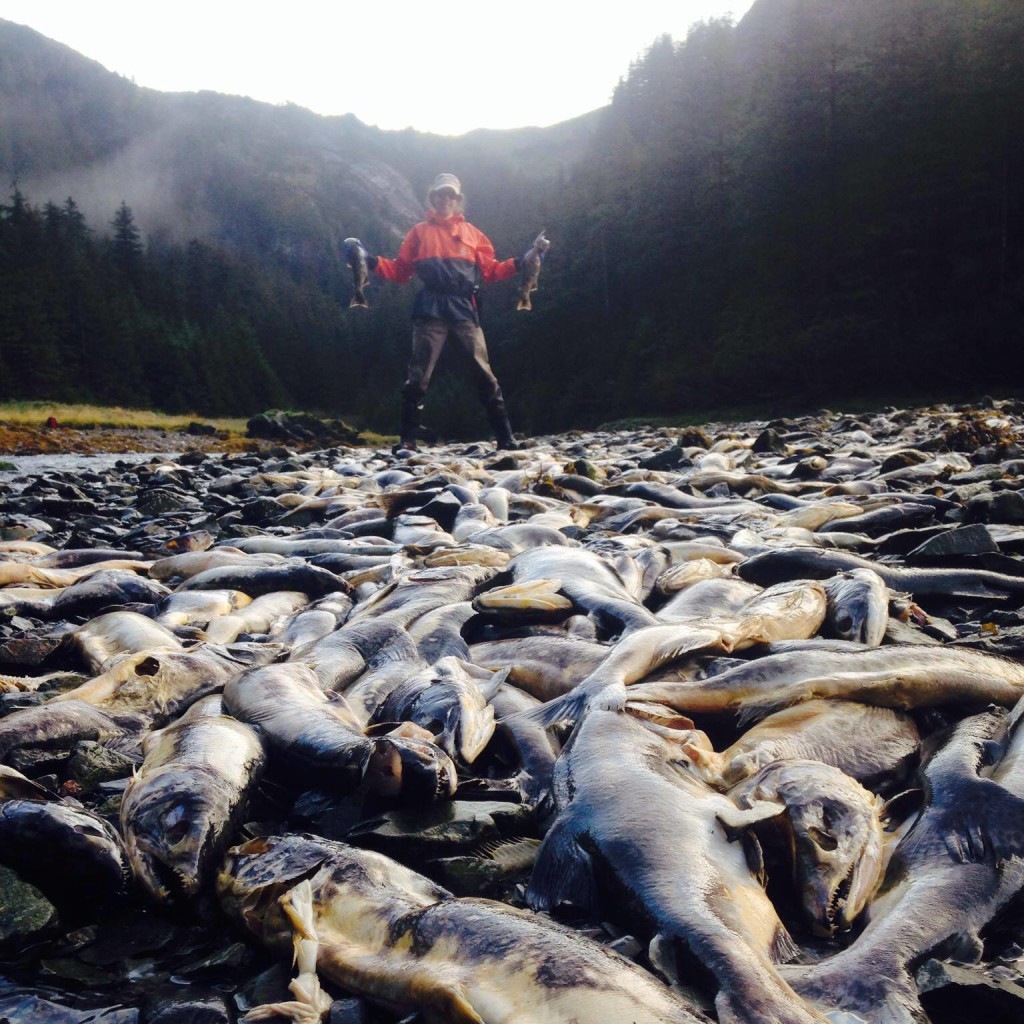
Samantha amidst a field of carcasses in Cordova, Alaska. Prince William Sound Science Center Wild-Hatchery Salmon Project. Photo by Kate Ruck
Meet Samantha Goebel: hiker enthusiast, wildlife field biologist, and self proclaimed fish geek.
Her love for the outdoors and willingness to travel has allowed her to work during and post college in a variety of locations ranging from North Dakota to Alaska, Pennsylvania, and Virginia. During her undergraduate, she spent time as an intern at Shenandoah National Park participating with a fish monitoring project conducting electrofishing sampling surveys, collecting morphological data, and assessing riparian stream habitats. Immediately after graduation, she flew to North Dakota to begin her first field technician position working with the USGS on a study looking at the impact of oil activity on prairie bird distributions. This summer, Samantha is heading back out for her second field season with the Prince William Sound Science Center’s Hatchery-Wild Salmon Research Project in Cordova, Alaska. To bridge her time in between jobs, Samantha works at an outdoor gear and apparel company where she gleans the thoughts of similarly minded outdoor junkies.
She doesn’t stop there! Next summer, she has grand plans to hike the Appalachian Trail and she eventually plans to return to school to complete a graduate degree in Fisheries Science.
Samantha has some great stories and great advice for those who wish to follow in similar footsteps. Let’s find out what she has to say!
What was your Bachelor’s degree in and at what point in life did you know what you wanted to do?
For as long as I can remember I always wanted to be a scientist. As a child I was drawn to marine science. During family trips to the Outerbanks and the Chesapeake Bay, I enjoyed listening to environmental educators talk about protecting our waterways from pollution and liter. Marine life, especially dolphins, fascinated me.
When beginning college, I was torn between art and science. During high school I found art as an outlet. I highly respect professional artists but it was a hobby for me not a career. Naturally, I followed the path of science. I began college with an emphasis in Environmental Science at New England College. My sophomore year, I decided to transfer to Juniata College, another small liberal arts school with extremely strong academics. At Juniata College, I changed my major to Wildlife Conservation. I was not interested in working an office job and most Environmental Science majors become consultants, lawyers, or engineers. I wanted to be in the field researching and implementing conservation strategies. I graduated from Juniata College in May 2014 with an emphasis in Wildlife Conservation.
What type of related job opportunities have you had over the years during and post college? Were they difficult to find? How did you decide which ones to go after?
I had a variety of seasonal field technician positions mostly related to bird and fish research. A field technician is a researcher who collects data to be analyzed by the head biologist of a larger agency. A bachelor degree in a related field of science is require for most technician positions.
Searching for technician positions is fairly easy but the jobs are extremely competitive as they receive many applicants. The best search engine I have used is the Texas A&M Job Board. I found that applying to as many jobs that interest you is the best strategy to ensure you have a summer field position, especially for your first job. My first job out of college, I found on the Texas A&M Job Board. After applying to about thirty positions I landed a job working with USGS as a prairie bird research technician in North Dakota. Be persistent and apply to as many jobs that you can. Once you have some experience under your belt, you become more competitive in the job market and job hunting becomes easier.
The second most important way to obtain a job is by maintaining connections. Three jobs I obtained by having connections with professors and friends who informed me about job openings. My first internship during college was at Shenandoah National Park as a fisheries monitoring and management intern. The position was advertised on USAJOBS and SCA job boards but I missed the posting. I heard about the position through a friend and called to see if there was still an opening. Sure enough, they had a person bail last minute and I was hired. USAJOBS is a great resource for government positions. SCA is a good resource for summer internships. Also, stay in contact with your professors. Through my connections with my professor, I was able to volunteer with the Pennsylvania Game Commission and work as a fisheries technician in Alaska. Maintain your connections and job opportunities will open up to you.
Lastly, be willing to travel. I never thought I would end up in North Dakota but it was a great experience to work with USGS. I have worked in North Dakota, Alaska, Pennsylvania, and Virginia. In this career field, you have the opportunity to travel and see places most people never see in their lifetime.
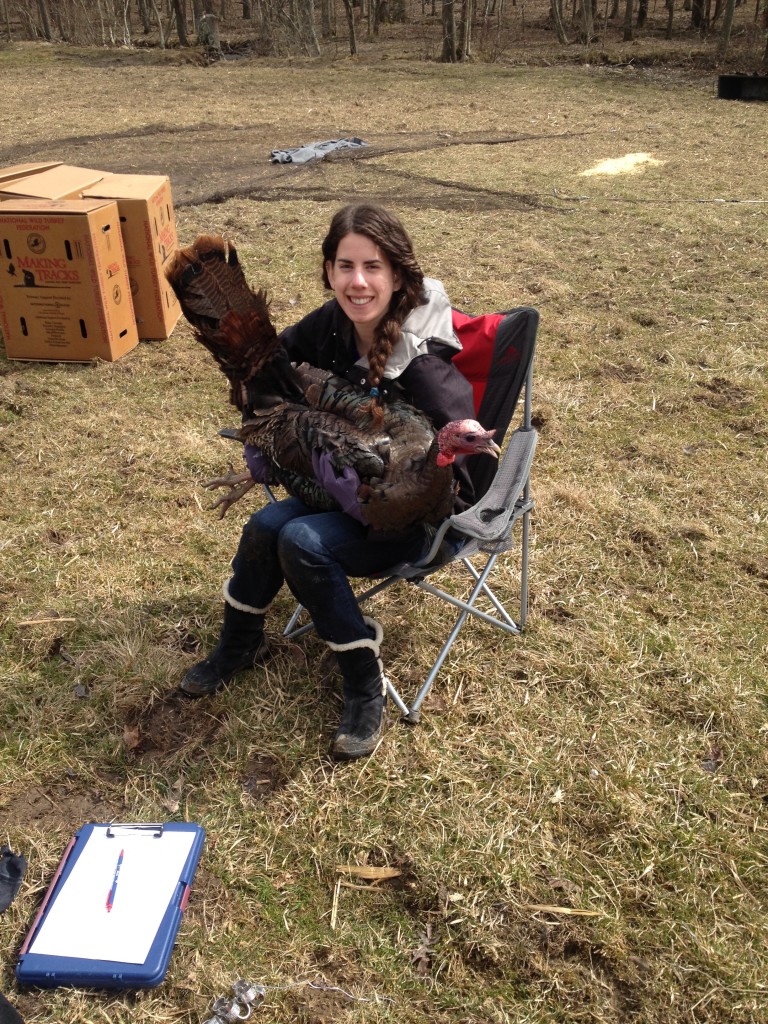
Working on an Eastern Wild Turkey research project with Pennsylvania Game Commission. Photo Credit: Talia Valencia and Rex
Did you have any preconceived notions about science, or scientists, and has that changed once you explored your career in it?
I had a preconceived notion that scientists spent a majority of their time in the field researching but that is not true. A full time biologist spends the majority of their time analyzing data in the lab, writing research papers and completing paperwork. The field technicians do the majority of the field work and collecting data.
What kind of scientist do you consider yourself?
I consider myself a seasonal field technician. I take seasonal full-time research positions and collect data for biologists who work for government and/or private agencies. I enjoy what I do because I like to get outside and collect data for research projects that have important implications to future conservation and management plans.
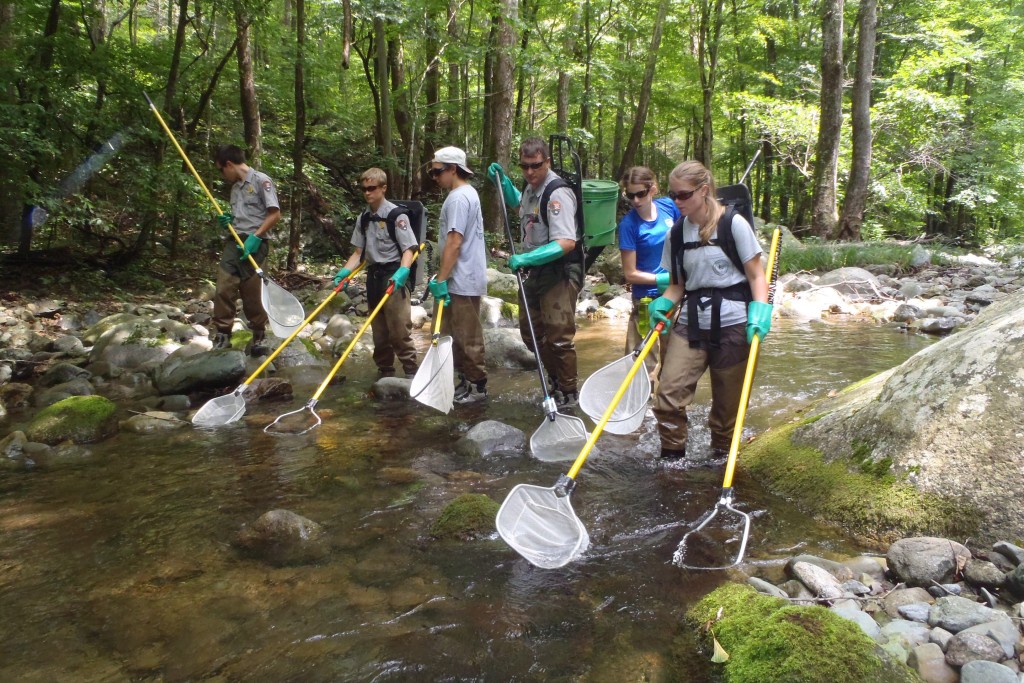
Electrofishing riparian streams in Shenandoah National Park for the fish monitoring internship. Photo Credit: Matt Lippy
You said you eventually want to get a graduate degree in Fisheries Science. What do you personally see as the pros and cons of either staying in the work force or getting a higher academic degree like a masters or PhD immediately? What were your reasons for not going directly into a graduate program?
I have discovered that a graduate degree is necessary to obtain permanent positions in the career field today. I did not go into a graduate program immediately after graduating college because I wanted to explore my career field more. I wanted to gain a better understanding of what I would like to focus my research on. A bachelors degree in Wildlife Conservation gives a person the opportunity to focus on many fields including: botany, fisheries, birds, reptiles, mammals, and more. When graduating from Juniata College, I thought I wanted to study birds. However, after working a few bird-related jobs, I have decided that is not the path for me. Then I thought about working with fish. After working a few field jobs with fish, I believe this is the path I want to follow for graduate school. I really enjoy the high activity involved with fish research and the many implications to fisheries management. I am not in a rush to go to graduate school. I want to spend the next two years traveling and working field positions across the nation. Plus I plan on hiking the Appalachian trail next summer. My current plan is begin applying for graduate programs in 2016 after hiking the Appalachian trail.
Have you had to make any big compromises or had struggles trying to make a career for yourself in the science world?
Yes, I believe every scientist struggles with balancing personal life and career life. Post-graduation I immediately flew to North Dakota and started working for USGS as a prairie bird technician. I had three days to move out of my off-campus house, take all my things home, visit family, and pack for North Dakota. I worked in North Dakota from May to July.
After completing the job, I was offered another position in Alaska working for Prince William Sound and Science Center. I had two weeks to book flights, fly home, unpack from North Dakota, pack for Alaska, visit family in Virginia, visit my boyfriend in Pennsylvania, and fly to Alaska. I worked in Alaska as a fisheries technician seven days a week from July to September with limited internet and phone connection. I was able to use my phone once a day for about five minutes. This was stressful for my family and my boyfriend because they would rarely hear from me and would never know when I was going to call.
After finishing the job in Alaska, I took some personal time to visit my cousin in California and I took a trip to Sicily with my family. I traveled until the end of October and I had not visited my boyfriend much. In November, I was offered a job with an observing company to work as a scientist aboard a fishing boat in the Bering Sea. I badly want to take the position but this would mean being away from my family and my boyfriend for another three months with limited phone connection. I knew my relationships would suffer so I declined the position and moved to Pennsylvania to be close to my boyfriend. Currently, I am working at an outdoor retail store in State College called Appalachian Outdoors. Yes I would rather be working on the Bering Sea but sometimes in the field of science you have to make sacrifices to maintain your relationships. There will always be positions available once I have enjoyed some time at home.
Who inspired (or currently inspires) you to go down the path of science?
My parents were my largest inspiration. Growing up we spent most of our free time outdoors hiking, biking, skiing, and kayaking. They took me to environmental education programs for kids where I listened to different science talks. I was encouraged as a young child to protect our environment and respect nature. My passion for the outdoors nourished a passion for science. My parents encouraged me to do what makes me happy. They always said, “Money does not pay for happiness”. They supported my decisions to study science at the college of my choosing. I didn’t make the right decision at first. But I found my path along the way and I am a proud alumni of Juniata College.

Growing up in the outdoors: Me as a little girl at Shenandoah River Outfitters, my family’s canoe company in Luray, VA. Photo credit: Andrea Goebel
Who do you aspire to be like?
I aspire to be me. I aspire to live a life that inspires others, to accomplish impossible things, and to achieve many goals.
What keeps you motivated when you’re feeling the drudgery? What keeps science FUN for you?
Good humor keeps me motivated. Sometimes the sky will unleash a terrible storm but you must work on to collect the data. I simply make light of the difficult situation and remember that I am doing this to make a difference. I am working towards a goal to preserve wildlife for future generations; each project has an important goal and it is my job to achieve that goal.
Advice you would tell youngsters (high school/college age); Some key points you wish you knew or that you keep in mind as you go forward in your career.
I would recommend youngsters in any career to try and gain career-related experience through volunteer opportunities or internships before graduating college. Also, I recommend them to maintain good connections and to apply to any job that interests them even if they do not think their qualified. Do not get discouraged, just keep applying to as many jobs as possible and the hard work will pay off.
What is your favorite job thus far?
My favorite job was working for Prince William Sound Science Center in Alaska. Not many women would be willing to jump aboard a vessel to collect bone and tissue samples from rotting salmon carcasses. But the job absolutely fascinated me. I enjoyed hiking through wild salmon streams where I had more contact with fish than people. Further, I was excited to work on a project of such importance. The results of this project will help determine whether more hatcheries are built in Prince William Sound, affecting the local economy and fisheries management strategies. If you would like to read more about my time in Alaska or other travels visit my blog. I will be returning to Alaska this summer and I will continue to blog about my journeys.
Check out more stories on Samantha’s personal blog!
Interested in finding jobs like Samantha’s? Check out this Career Resource.
See more photos in this album. All photos courtesy of Samantha Goebel.
Share this: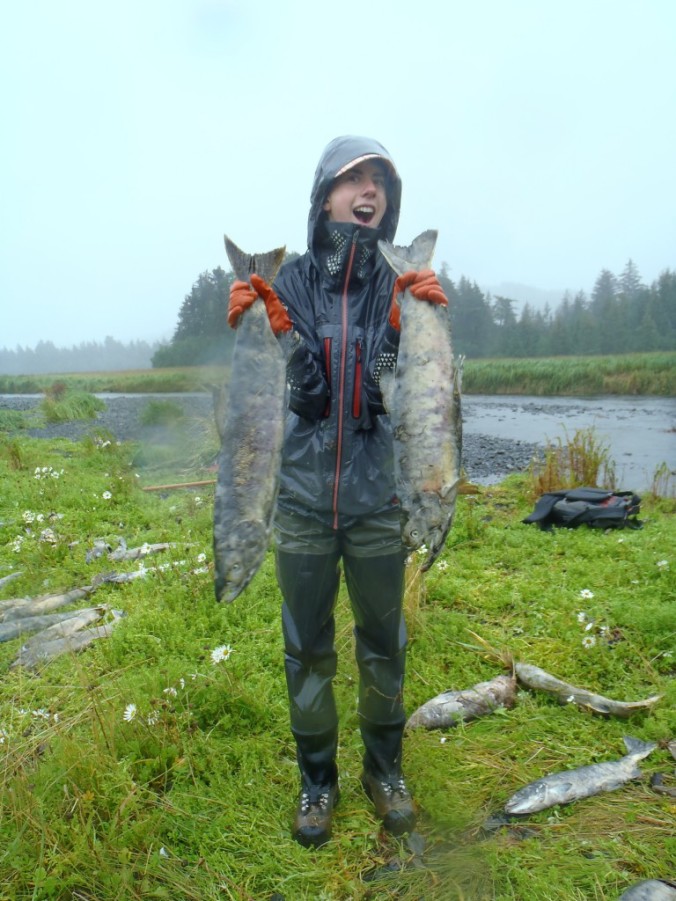
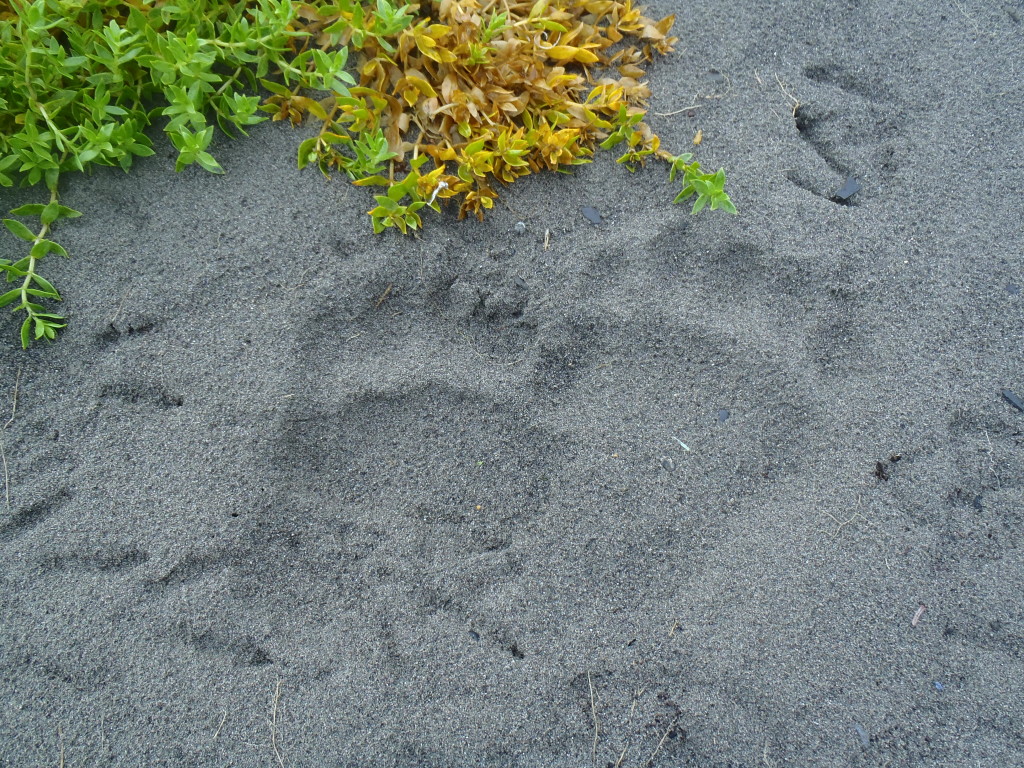
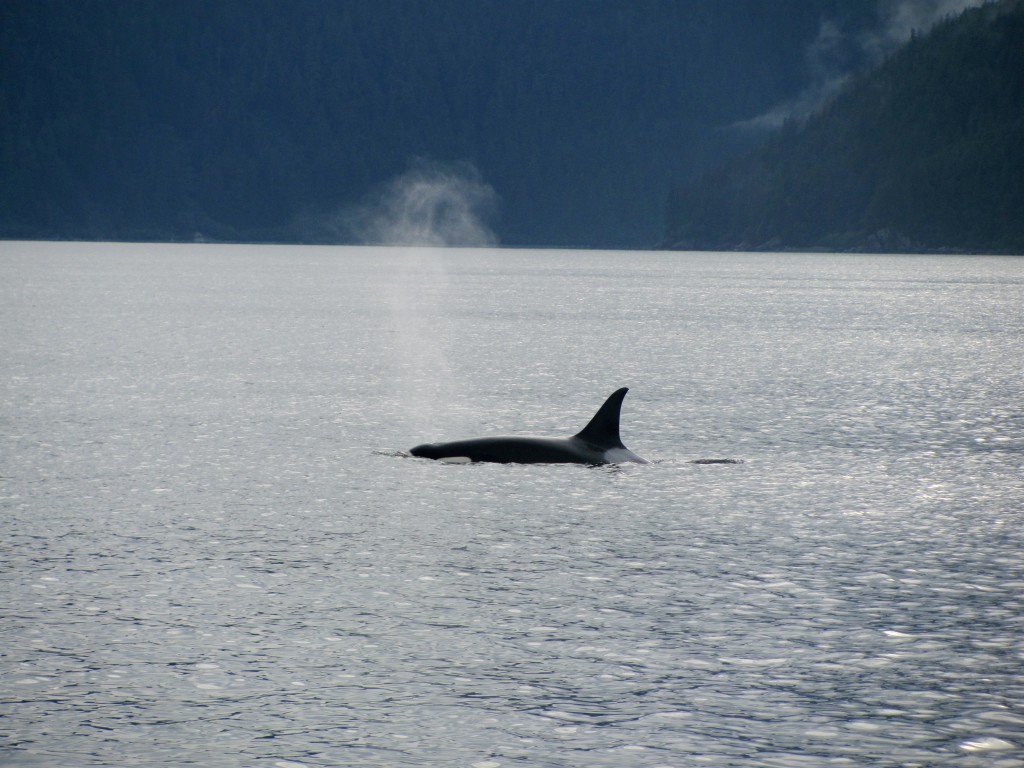
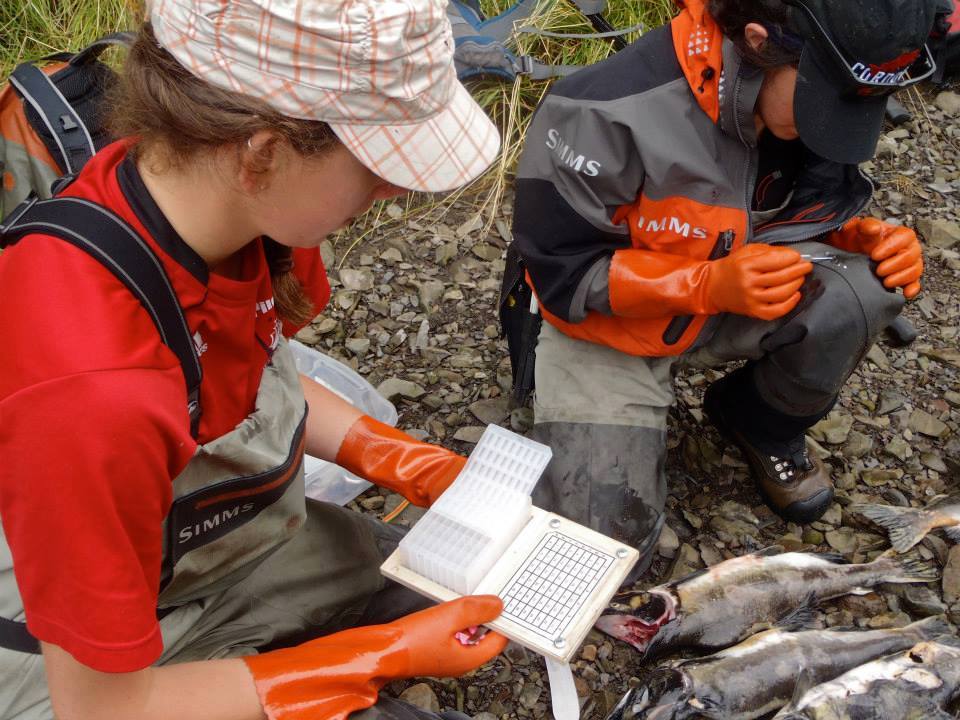

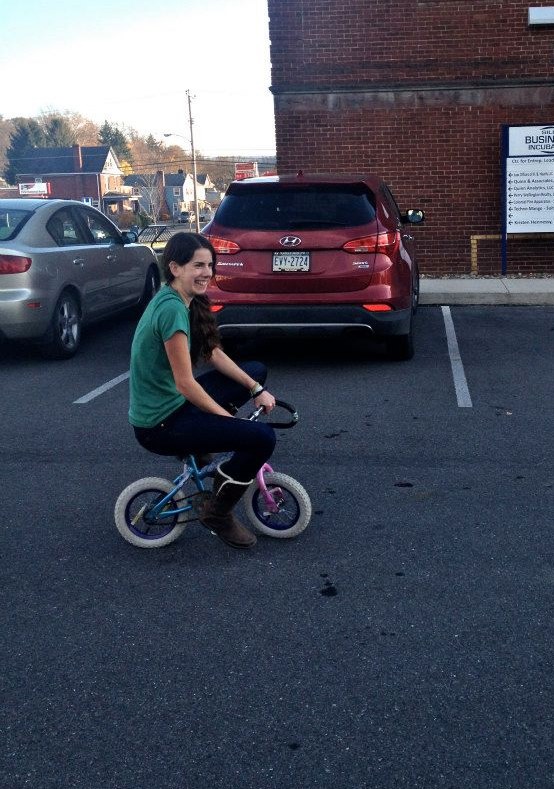

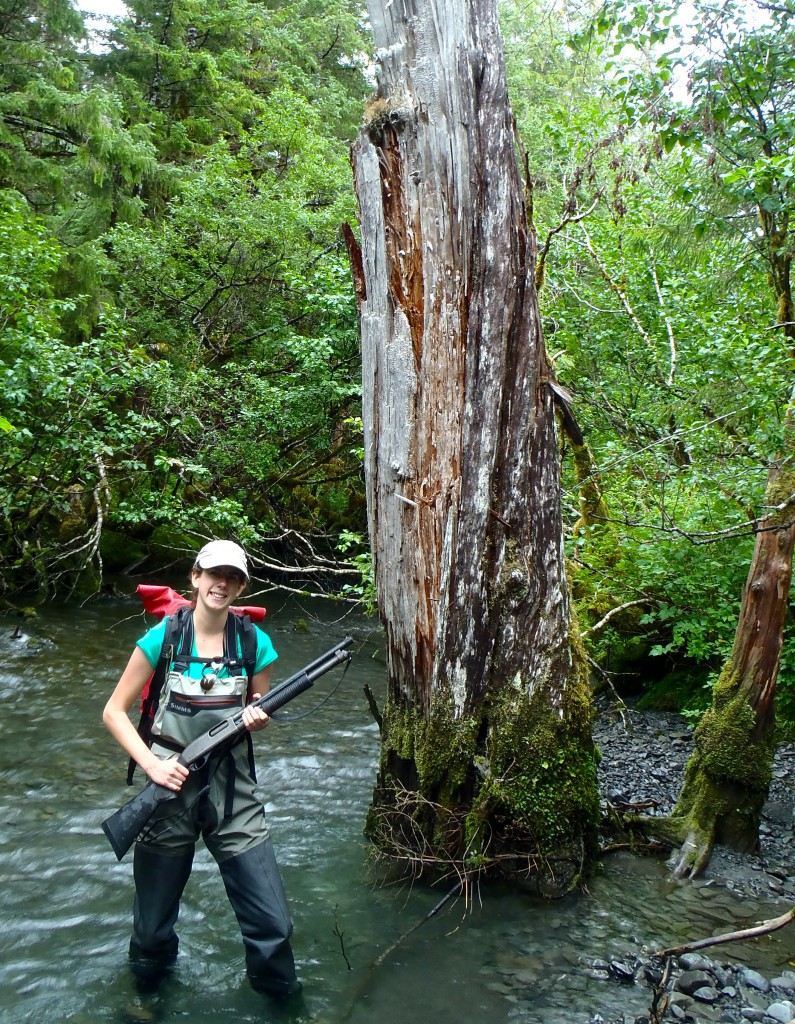
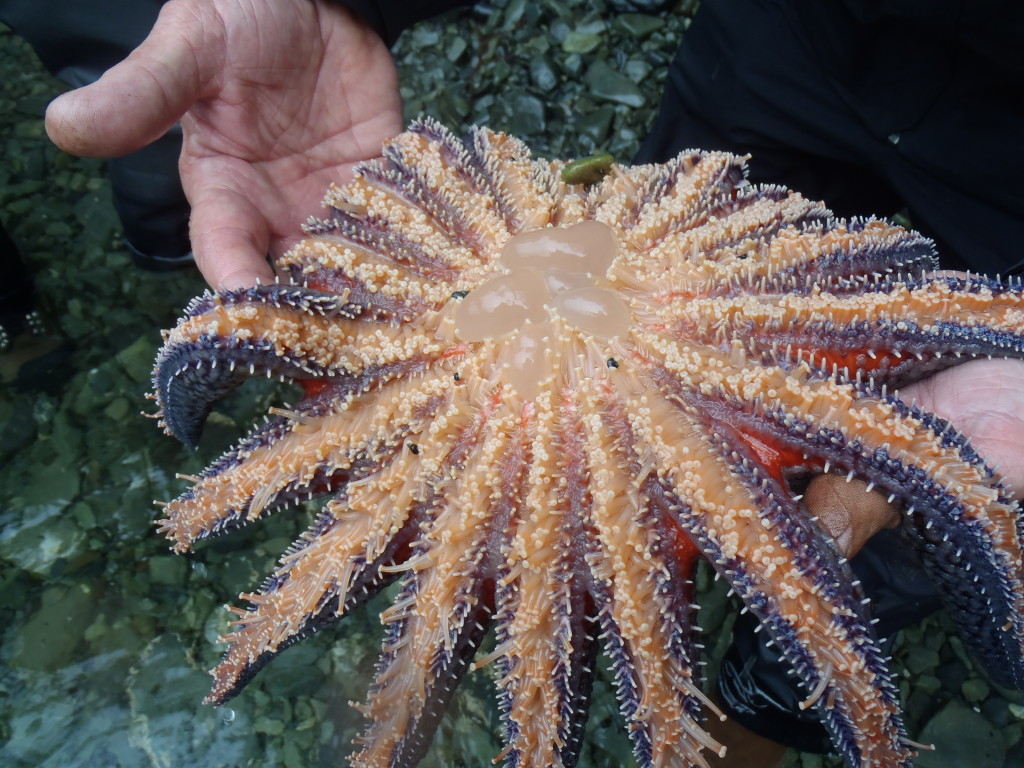
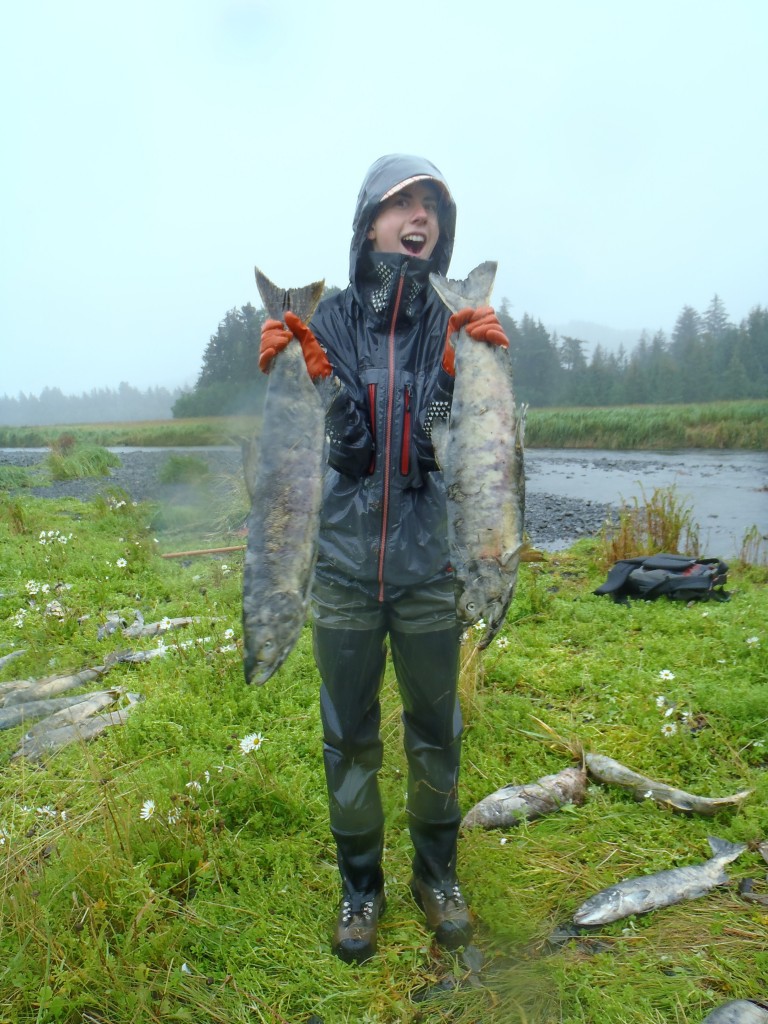






































Recent Comments